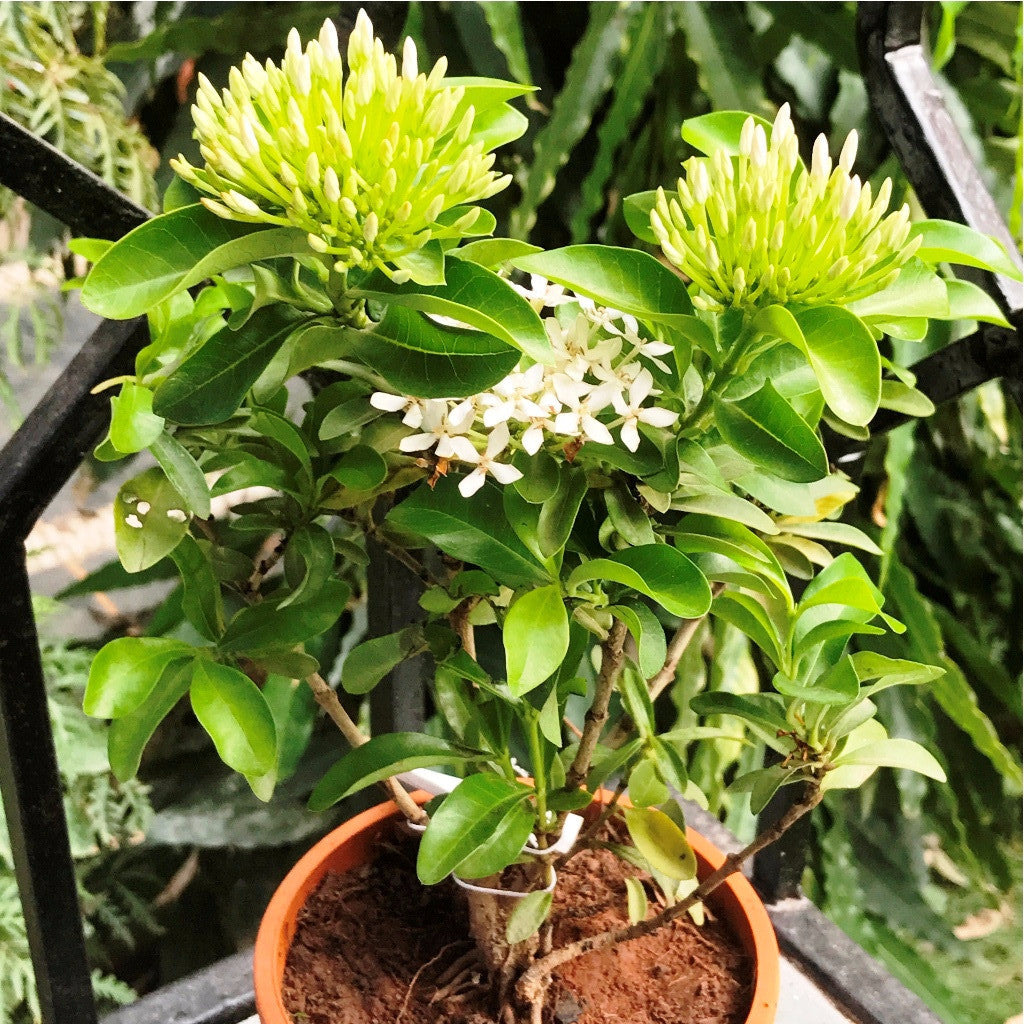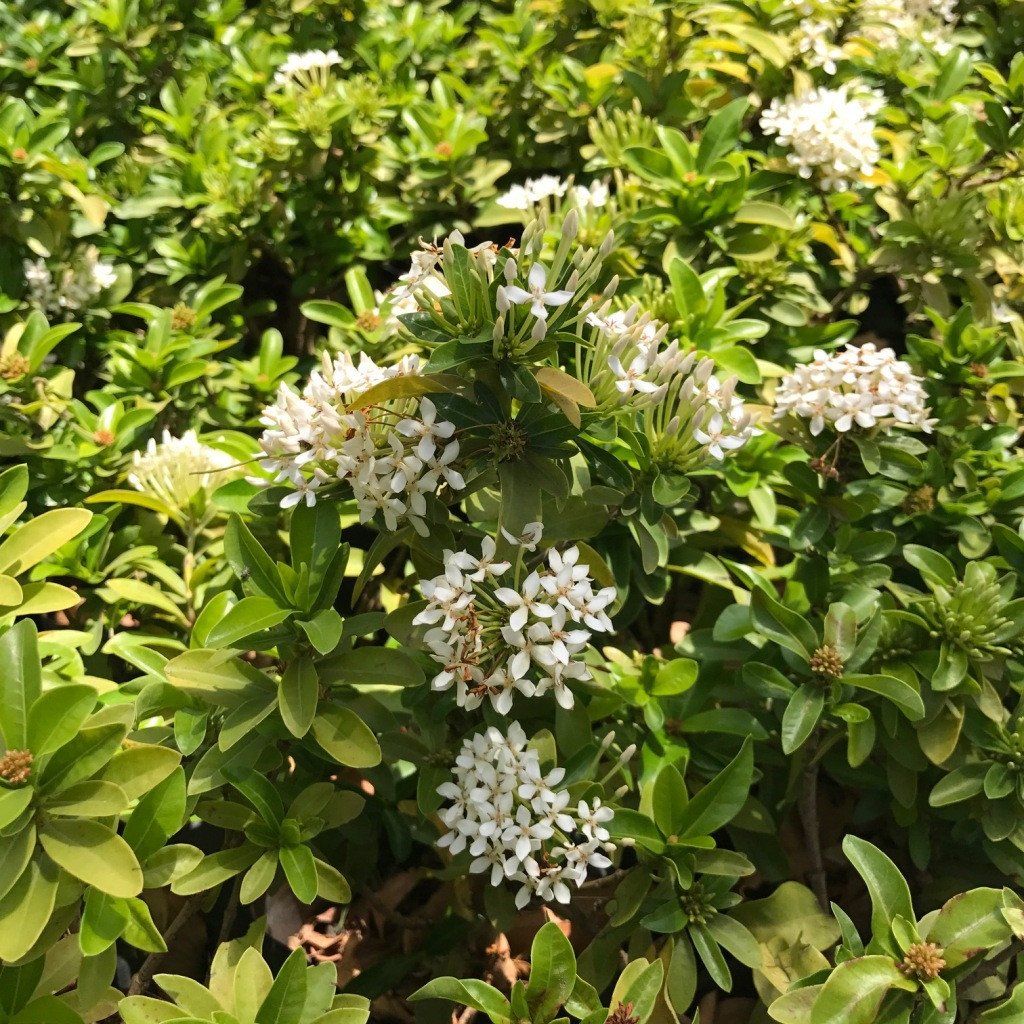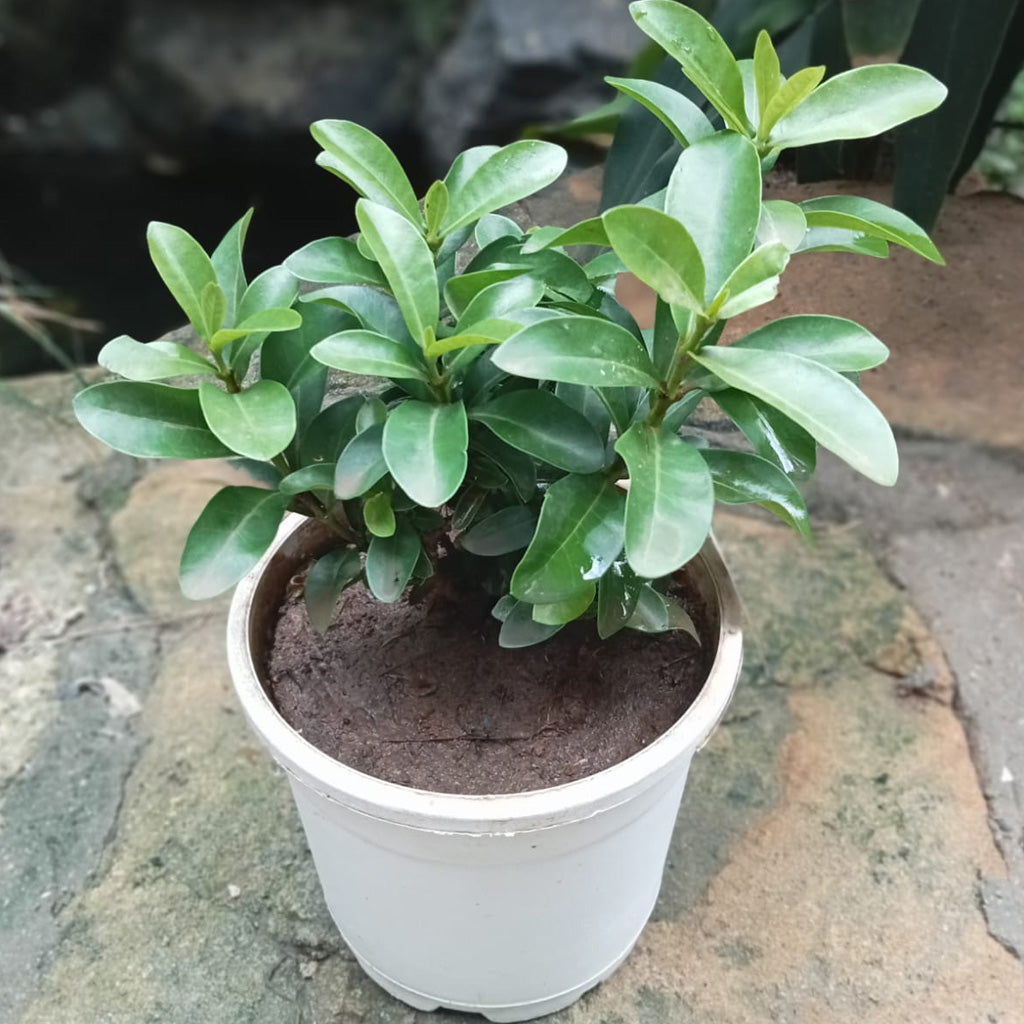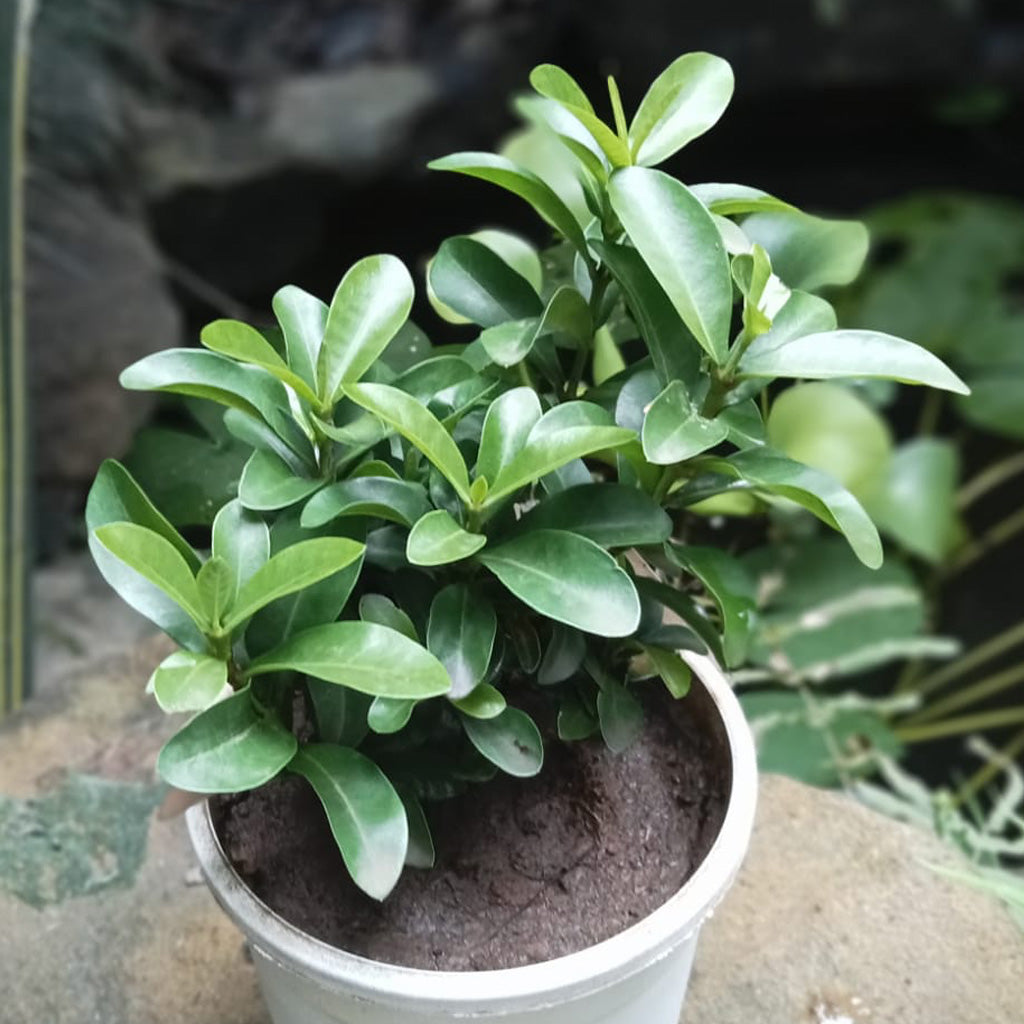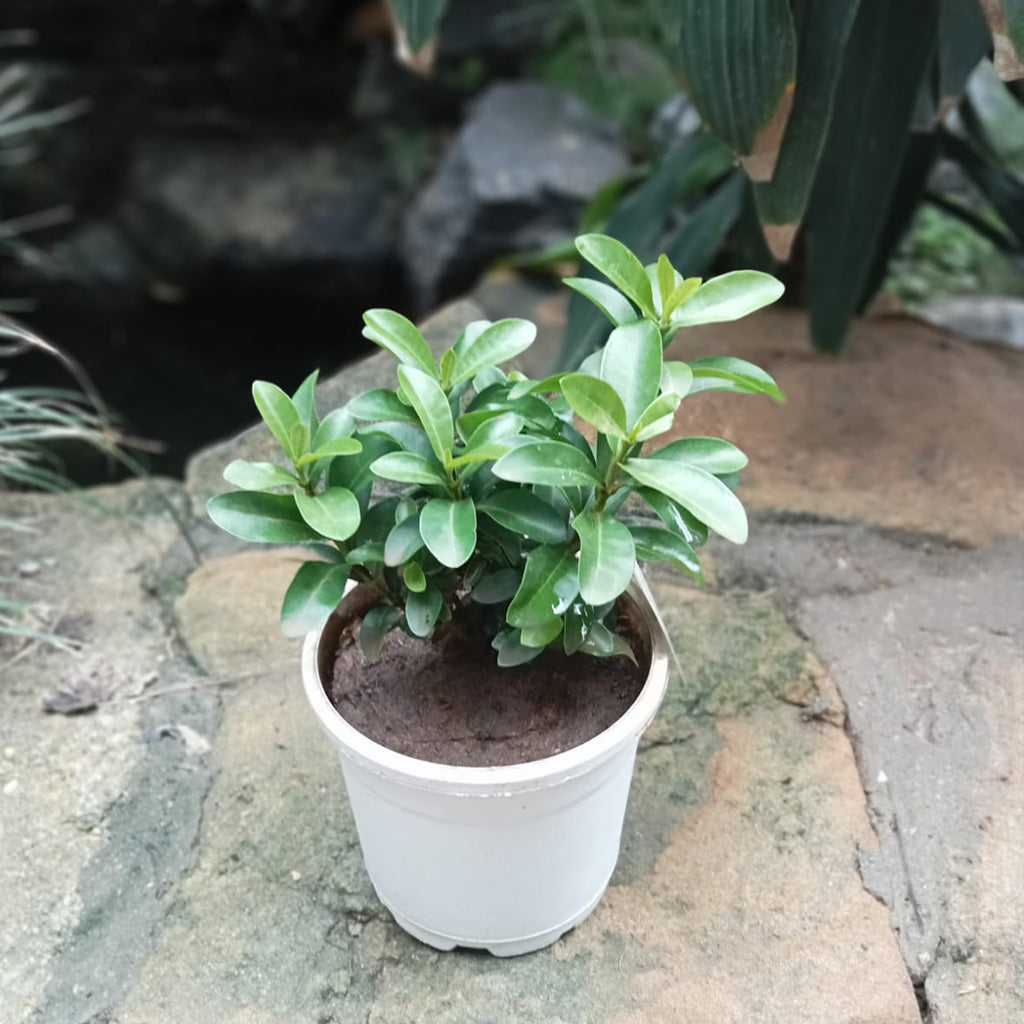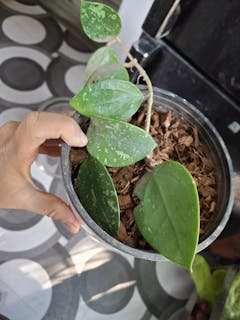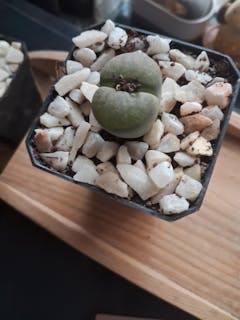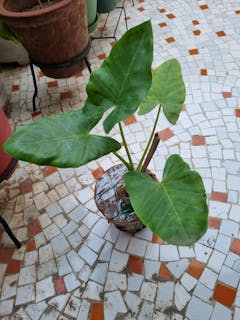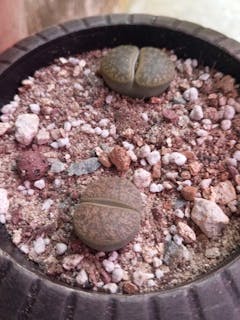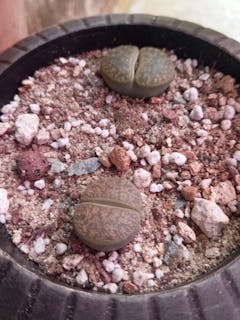Dwarf Ixora (White)
Family
Rubiaceae
Native
Tropical Asea
Description
Ixora is a genus of flowering plants in the Rubiaceae family.It is one of the most colourful flowering and hedge plants available. Most will grow in sun or shade and have flowers in massed heads throughout the year.
The plants possess leathery leaves, ranging from 3 to 6 inches in length, and produce large clusters of tiny white flowers in the summer.
Environment
Plant Ixora in moist, organic enriched and well-drained acidic soil, and where there is abundant sunlight and humidity for optimum growth and flowering. Remove flowers when withered and dried leaves if any.
Prune annually to keep bush in shape or to encourage flowering, instead of repeatedly shearing off branch tips which will inhibit emerging flower buds.
Feed monthly with a water-soluble fertilizer formulated for acid-loving plants.
It is susceptible to yellowing of leaves (chlorosis) when grown in alkaline soil.
Landscape Uses
Excellent for hedges, screens or massed in garden beds and borders

